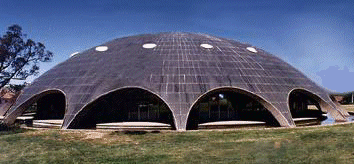 The
Australian Academy of Science Has Its Say Regarding the Research Quality
Framework. (May 9, 2005)
The
Australian Academy of Science Has Its Say Regarding the Research Quality
Framework. (May 9, 2005)
|
News & Views item - May 2005 |
![]()
 The
Australian Academy of Science Has Its Say Regarding the Research Quality
Framework. (May 9, 2005)
The
Australian Academy of Science Has Its Say Regarding the Research Quality
Framework. (May 9, 2005)
On April 28, on behalf of the Australian Academy of Science (AAS) its President, Jim Peacock, wrote to the Department of Education, Science and Training with regard to the proposed Research Quality Framework:
The Australian Academy of Science [held] in February 2005 [a] workshop Establishing a Research Quality Framework. The Academy agrees that the introduction of an RQF would play a useful role in better allocating discretionary institutional funding within the research system and help to boost the quality of publicly funded research in Australia.
The AAS then sent the eleven page
report
Establishing an Australian Research Quality
Framework: Summary of discussion from the Australian Academy of Science Workshop![]() as an attachment to its submission saying, "The Academy considers that this
report and accompanying letter provide a more expedient
submission
as an attachment to its submission saying, "The Academy considers that this
report and accompanying letter provide a more expedient
submission![]() at this stage of the process and have therefore not undertaken the formal
structured response," an effective ploy to avoid dealing with the
multiple-choice issues paper that DEST published.1,
2,
3,
4.
at this stage of the process and have therefore not undertaken the formal
structured response," an effective ploy to avoid dealing with the
multiple-choice issues paper that DEST published.1,
2,
3,
4.
The AAS then summarises its position,
"[A] model of faculty/departmental-level assessment involving self assessment
against a menu of performance areas (accompanied by guidance on
appropriate metrics and review by blended expert/peer panels) had broad support
as a potentially effective and workable model for an RQF."
The Academy emphasised that the quality of training by a department/faculty should play a role in the assessment process as should "inclusion of 'early career researcher performance'."
On the other hand "commercialisation outcomes should not be considered within a RQF" and "National Research Priorities are not relevant," and while the Academy recognised that publication and citation counts were... flawed and vulnerable to 'gaming' it seems to agree that they should be used together with other exiting metrics (perhaps such as analysed by the ABS?) but that they should be augmented by panels of experts which are capable of evaluating not only at highly focused levels but who also could muster a broad outlook. The submission invokes the phrase "a blended panel".
The Academy made a point that "Some international representation on the panels was seen as essential, as was some form of protection for panels to ensure that reports are not self-censored."
And finally, "Having significant funding attached to the first round would facilitate the RQF being taken seriously and make it worthwhile," and there should be adequate precautions to preclude unforseen consequences of the RQF that is decided upon. In summary the AAS avoided making specific positive recommendation really leaving it to DEST to come up with an RQF after it has the report of its Expert Advisory Group1, 2, 3 and then seeking opinions from say the initial working groups it consulted. On current form it seems unlikely that it will.
The fact remains that there is no indication so far that the federal government intends to augment its research funding, but rather reallocate current funding for what it views as more efficient use to realise its goals. Just what they are and how visionary they may or may not be will become apparent in due course.